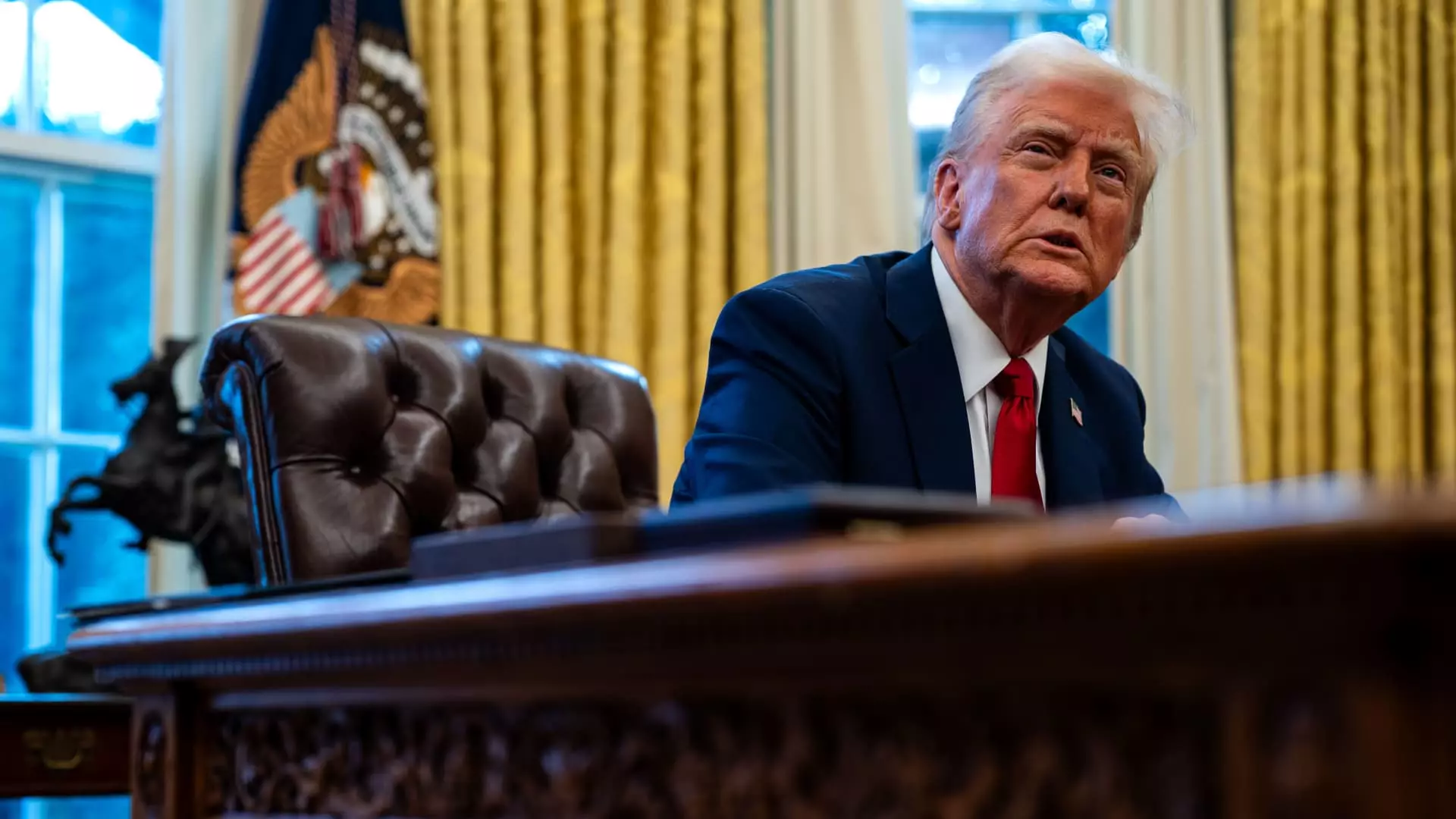The announcement by former President Donald Trump to impose a 25% tariff on imports from Canada and Mexico in February rekindles longstanding debates over trade policy, national security, and economic strategy. At its core, this decision is laden with political implications, economic consequences, and questions of diplomatic relations that merit deeper exploration.
Trump’s justification for these sweeping tariffs hinges on a trio of factors he deems crucial: immigration control, drug trafficking, and trade deficits. In his discussions, Trump articulated a narrative where the increase in tariffs is portrayed as a necessary measure against what he considers unfair practices by neighboring countries. He argues that these tariffs, which he intends to implement starting February 1, serve to protect American jobs and curb the influx of illicit substances across borders.
However, the notion that tariffs can effectively address complex issues such as immigration and drug trafficking can be debated. Critics might argue that tariffs are a blunt tool that primarily impacts economic exchange rather than addressing the nuanced challenges of border security or drug policy. This approach risks alienating both Canada and Mexico, allies whose cooperation is often vital in combating issues related to security and trade.
The immediate economic repercussions of Trump’s tariff strategy could reverberate through supply chains and consumer prices. Trade analysts warn that significant tariffs on imports from these major trading partners could lead to increased costs for American consumers. This sentiment was echoed by both Canadian and Mexican officials, who have indicated potential retaliatory measures that could escalate into a tit-for-tat trade war.
To illustrate, Canadian Minister of International Trade, Mary Ng, has noted that retaliatory tariffs are a feasible response to U.S. tariffs. Such countermeasures could apply to vital sectors such as energy, a crucial component of American imports from Canada. As history shows, imposing tariffs often leads to increased prices for consumers as companies pass costs down the supply chain, creating inflationary pressures, a concern echoed by the Bank of Canada.
In light of these proposed tariffs, the delicate fabric of U.S.-Canada-Mexico relations may be put under strain. Both Mexico and Canada have historically maintained that they would respond to unjust tariffs with their counteractions, potentially leading to a breakdown in diplomatic rapport. This situation raises concerns about achieving broader international cooperation in areas that transcend trade, such as environmental policies and security alliances.
Maintaining healthy trade relationships is critical, especially given that Canada and Mexico represent two of the largest export markets for the United States. Should the U.S. follow through with substantive tariffs, what might the long-term effects be on trade agreements, particularly the United States-Mexico-Canada Agreement (USMCA)?
Interestingly, Trump’s reluctance to include oil imports under the tariffs underscores how interwoven economic factors are. The unpredictability surrounding whether oil prices would be affected reveals a larger narrative about energy dependencies and domestic pricing. Historical fluctuations in oil prices can have broad implications, not just economically but also politically, as many state and local economies significantly rely on stable energy prices.
While Trump suggests the tariffs are about treating the U.S. “properly,” it remains to be seen how such trade barriers will shape the oil industry and overall economic landscape, both in the short term and the long haul. The global oil market’s sensitivity to these kinds of tariffs could, paradoxically, lead to the very price inflation Trump seeks to avoid.
The decision to impose 25% tariffs on imports from Canada and Mexico from February highlights a complex interplay of trade politics and economic priorities. While the intention may be presented as a measure to defend American interests, the potential fallout is intricate and voluminous.
It’s essential to assess these developments not just through the lens of immediate economic impacts but also considering longer-term ramifications on international relations and global markets. As the situation unfolds, it will require careful navigation to strike a balance between national interests and maintaining cooperative relationships with neighboring nations. Ultimately, the path ahead is fraught with uncertainty, demanding keen attention from policymakers, businesses, and consumers alike.


Leave a Reply